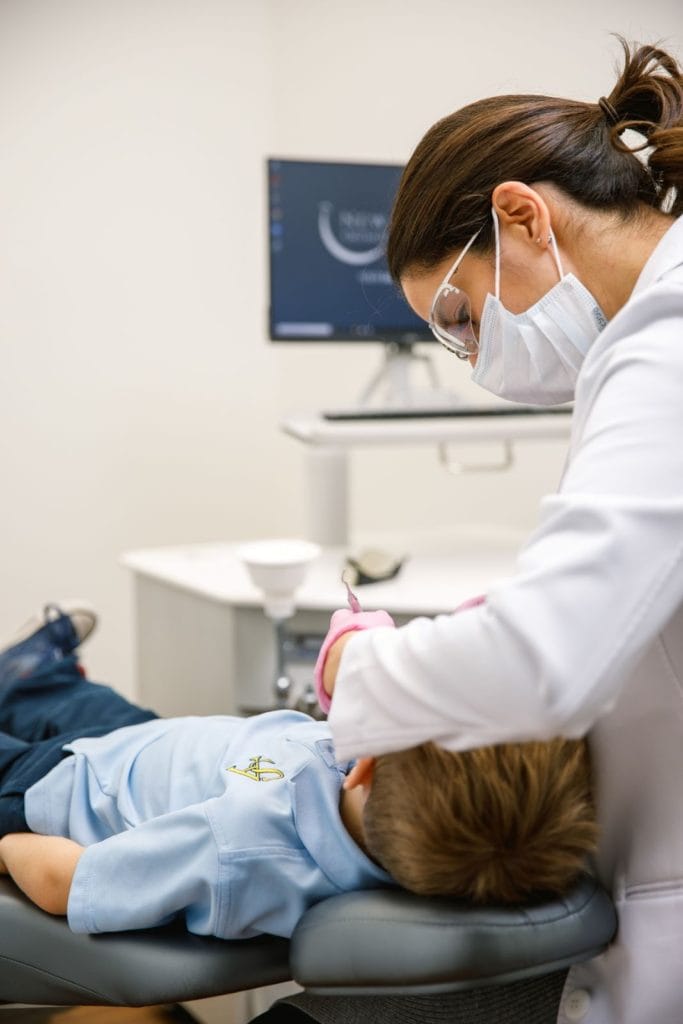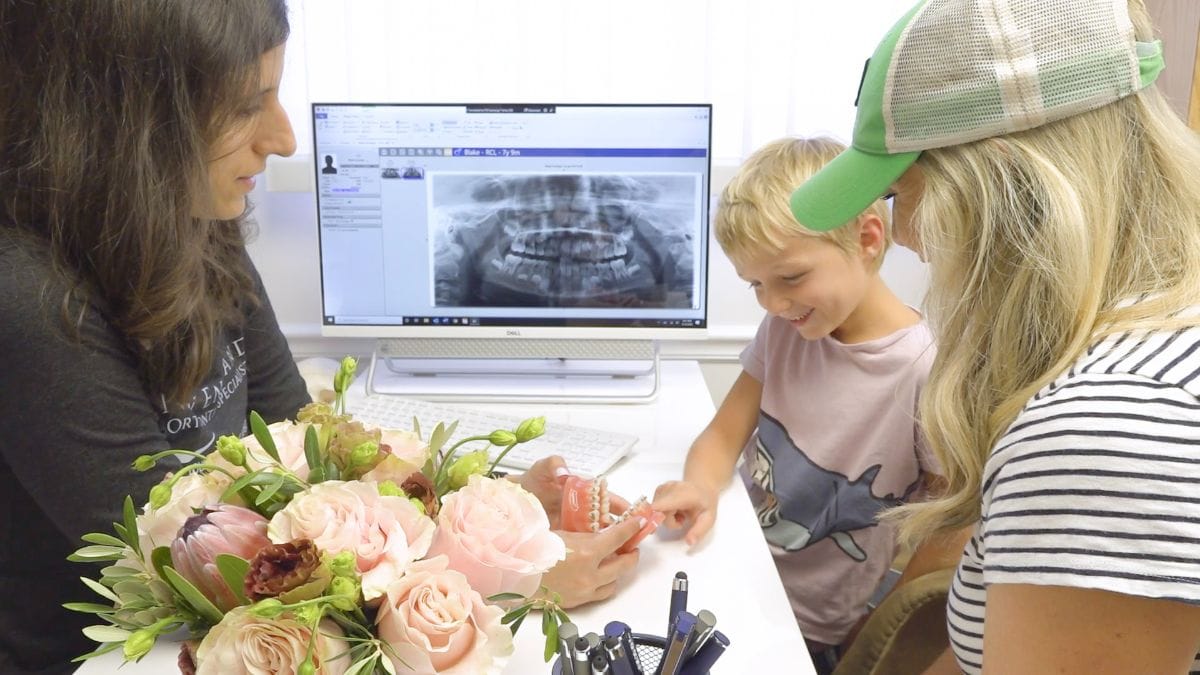When it comes to bad habits, it’s not unusual for kids to pick a few up here and there throughout their childhood. And while most of these tend to be relatively harmless, some can affect the way a child’s smile looks, feels, or functions! If these destructive habits are allowed to continue, they may result in a range of dental issues, including:
- tooth decay
- misaligned teeth and jaw
- difficulty eating
- interrupted sleep
- speech problems
At New England Orthodontic Specialists, we’ve seen the harm that these habits can cause and want to help parents prevent these problems. By identifying and addressing bad oral habits as soon as possible, the potential for damage can be reduced. With that in mind, let’s take a closer look at the habits we see most often and discuss how getting them under control can give your child a healthier smile! Keep reading below to learn more.
Thumb and finger sucking
Thumb and finger sucking is most common in early childhood, but it can sometimes persist into adolescence and even adulthood. If it’s allowed to continue over a long enough period of time, this habit can cause problems like:
- open bite of the front teeth
- flared upper incisors
- tipping of the lower incisors
- misalignment of the future permanent teeth
- deformities of the roof of the mouth
These symptoms may range from mild to serious, depending on the severity of the habit and the way a child positions the thumb or finger in their mouth. Without treatment, the cosmetic appearance of the teeth may eventually suffer. Damage may occur beneath the gums as well.
Lip sucking is a similar habit, but it’s not as common as thumb or finger sucking. While it usually results in little more than chapped or inflamed lips, a more serious habit could cause the upper front teeth to flare out or the lower front teeth to tilt towards the tongue. Over time, these teeth may lose the ability to touch when the mouth is closed.
Crunching on ice or chewing on objects
It’s not unusual for kids and adults alike to crunch on leftover ice or gnaw on their fingernails when they’re nervous. As common as these habits are, they do have the ability to damage the teeth and gums. For example, a child who bites their nails may experience chipped enamel, cracked teeth, or irritation of the soft tissue inside the teeth.
This particular bad habit can also transfer bacteria from a child’s hands to their mouth, something we’ve all learned to avoid recently. If the last eighteen months has taught us anything, it’s that we should do our best to curb any practice that can increase the risk of infection. That certainly includes nail-biting!
If you have an older child who is prone to chewing on things or biting their nails, you can try offering sugarless gum to help them focus on something less destructive. Children that are too young for gum may respond well to a healthy snack that has a satisfying crunch, like carrots, celery, or apple slices ( all of which also happen to be good for their oral health!)

Teeth grinding
Teeth grinding, also known as bruxism, is fairly common, especially in younger children. Most kids outgrow this habit by their teen years, but it can still cause problems while it continues. For example, the grinding action itself wears down the enamel of the teeth, which can damage the tooth and also disrupt sleep. This can lead to other physical symptoms such as headaches, earaches, and jaw pain. While there are many possible causes for bruxism, it’s often seen in children with bite and alignment issues. In these cases, orthodontic treatment can be incredibly beneficial!
How our early orthodontic evaluations can help
It’s important for parents to instill good dental hygiene habits in their children to help them maintain a healthy smile. That means regular brushing and flossing, of course, but it also means identifying and addressing bad oral habits! One easy way to do this is by scheduling an early orthodontic evaluation with one of our doctors.
This is actually something the American Association of Orthodontists recommends for all children around 7 years old! By this age, a child’s mouth will have enough dental landmarks that an orthodontist can assess their bite and get a good look at how the front-to-back and side-to-side relationships are developing.
Although some parents worry that this consultation will lead to orthodontic treatment immediately, we tend to recommend this for only a small percentage of the young patients we see. However, these early evaluations are still valuable, as they give us the chance to monitor a child’s oral development as they grow. This means we’ll be able to catch any potential issues before they become more serious, giving the child the best chance at a lifetime of healthy smiles!

Break bad habits with support from New England Orthodontic Specialists
Dr. Diana Esshaki and Dr. Neil Flückiger have many years of combined experience in providing North Shore families with beautiful smiles. They’re able to not only correct misaligned teeth and other dental issues, but also identify any underlying bad habits. If they spot one that’s causing problems for your child, they’ll be able to advise you on the best course of action going forward.
When you schedule a free consultation for your child in one of our four offices, Dr. Neil or Dr. Diana will perform a thorough examination of their mouth. They’ll look over their medical and dental history, then listen to any concerns you may have about their dental development. If a customized treatment plan is necessary, it will take into account any destructive oral habits they have and include our suggestions for correcting or eliminating them.
If you believe your child needs help breaking free from a bad oral habit, get in touch with us today and schedule a FREE consultation with one of our experienced orthodontists!
